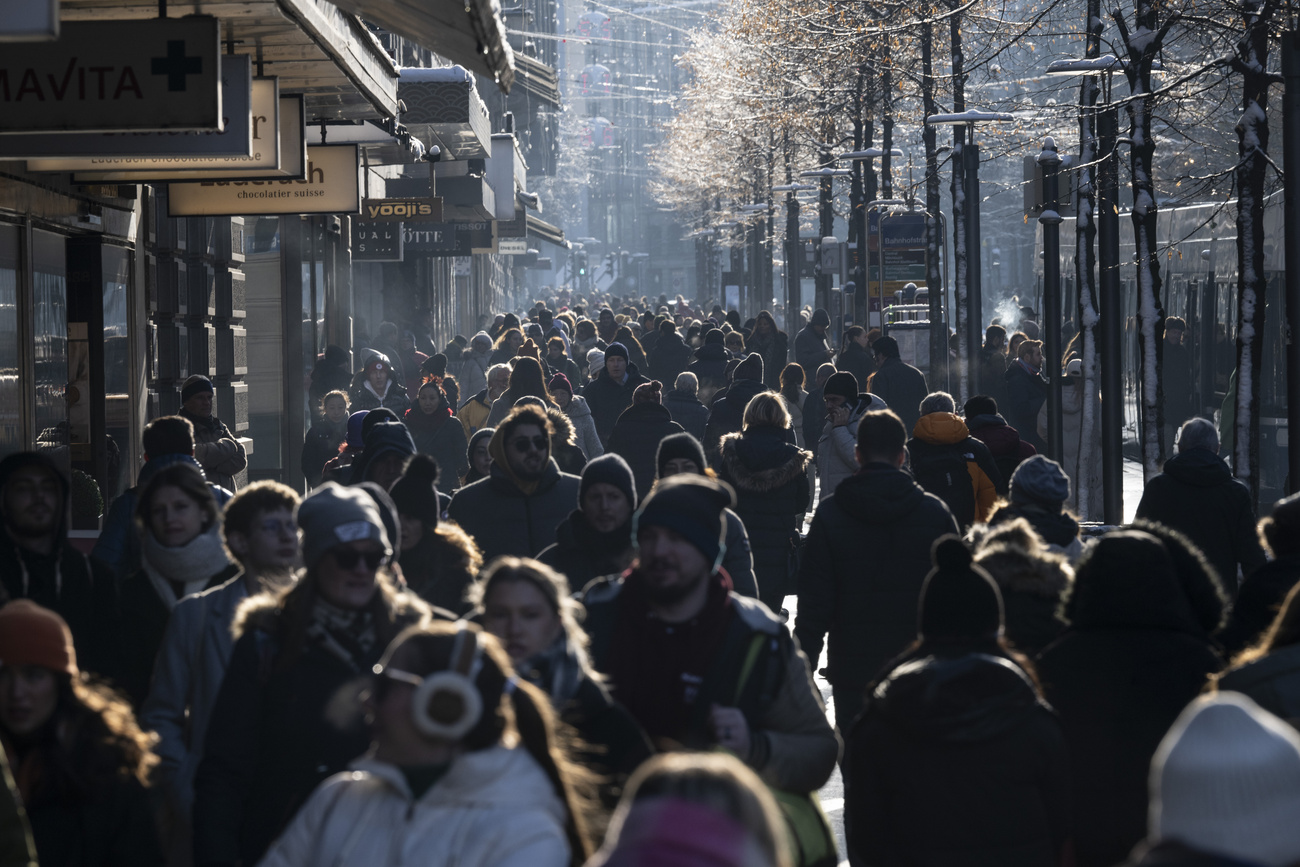
Magazine editor casts a critical eye on the US

The razzmatazz of the United States presidential election has dominated the headlines in Switzerland as elsewhere over the last few weeks.
As voters went to the polls on Tuesday, Swiss magazine editor Pierre-Marcel Favre told swissinfo why Europeans were still fascinated by the US.
Radio stations, television networks and newspapers in Switzerland and across Europe have been keeping their listeners, viewers and readers informed about the latest news from the Bush and Kerry campaign trails for weeks.
A new quarterly publication, “L’Empire” (The Empire), devoted exclusively to the United States and produced in Paris and Lausanne, has also been making its voice heard.
Pierre-Marcel Favre, who is in charge of the Swiss section of the publication, is not surprised by Europe’s fascination with what is going on in the US.
swissinfo: Europe has been following the US election for weeks. Are you surprised by the amount of media coverage?
Pierre-Marcel Favre: Not at all. It can be explained to a large extent by current events. Things that are going on in Iraq, which have taken on an extraordinary dimension, are changing the situation.
[The war] has allowed people to see more clearly the power of US intervention, which often takes place behind the scenes, but is in this case transparent.
swissinfo: Aside from the interest on a political level, isn’t there simply a deeply-rooted fascination in Europe about the US?
P-M.F.: Of course. American culture, whether you like to call it that or not, influences us in a thousand different ways. There is the formidable American cinema, the not so formidable television series, as well as the country’s literary heritage, which is impressive. And of course [everyone knows] American food.
And then you have the dollar, which reigns supreme around the world and influences our daily lives. For example, the price of a barrel of oil is fixed in dollars, which means there is an immediate impact on our own wallets.
swissinfo: The term “American dream” has been around for a long time. But its meaning has changed. Is it fair to say that it no longer means what it did 20 or even 50 years ago?
P-M.F.: For Europeans, there can be no doubt that this is the case. The American dream has disappeared, if not completely, at least to a very large extent.
However, in South America and other parts of the world where life can be a daily struggle [to make ends meet], there is still the sense of an American dream, because there is in theory a chance to go there, integrate quickly and make a living. The concept of the American dream has always had an economic resonance.
That said, it’s probably more accurate to talk about a “United States” dream rather than an “American” one, because this dream has nothing to do with Canada, Mexico, Central America and South America – even though they are all American.
swissinfo: How did the idea come about to create a publication which takes a critical look at the US?
P-M.F.: There are magazines about everything and nothing… from fishing to ancient Egypt and hang-gliding. But [until we came along] there was no publication dealing exclusively with the one thing that shapes our very existence, namely the United States. So there was a gap in the market.
There have been hundreds of thousands of films, reports, books and articles that present an idyllic view of the US. It’s healthy and normal that you also have a magazine that chooses criticism, takes a critical distance and is prepared to scratch away at the surface.
swissinfo: To sum up, what do you yourself love and hate about the US?
P-M.F.: Well, Americans are in general perhaps [considered to be] not that well informed, but they are warm and welcoming. Then, of course, there is the landscape, the literature and the real sense that in the US you can set out to achieve something and succeed.
One negative point – and this is very true today – is the fact that the country can ignore the rest of the world. This can be seen in the way that the majority of Americans do not have passports and have never set foot outside the country.
It’s also a country of contradictions. I was recently in the US with my 17-year-old son. We were thrown out of a restaurant because he ordered a beer. And this happened in a country where you’re free to buy guns. The same young man, if he had been born a US citizen, could have gone to Iraq and been killed. There’s something oddly paradoxical about the fact that anyone under 21 is not allowed to drink beer, but can be sent off to kill or be killed.
swissinfo-interview: Bernard Léchot
“L’Empire” is a quarterly publication, co-edited in Paris and Lausanne.
Pierre-Marcel Favre is in charge of the Swiss section of the magazine.
The first edition appeared in October, with 8,000 copies printed for Switzerland and 40,000 for France.
The first issue of L’Empire contained contributions from Richard Labévière, Marie-Hélène Miauton, Marian Stepczynski, Jean Ziegler, Jacques Neirynck and Laurent Flutsch.
The date of the second issue has not been fixed. According to the editor, advertisers are reluctant to support a magazine which is so critical of the United States.

In compliance with the JTI standards
More: SWI swissinfo.ch certified by the Journalism Trust Initiative




























You can find an overview of ongoing debates with our journalists here . Please join us!
If you want to start a conversation about a topic raised in this article or want to report factual errors, email us at english@swissinfo.ch.